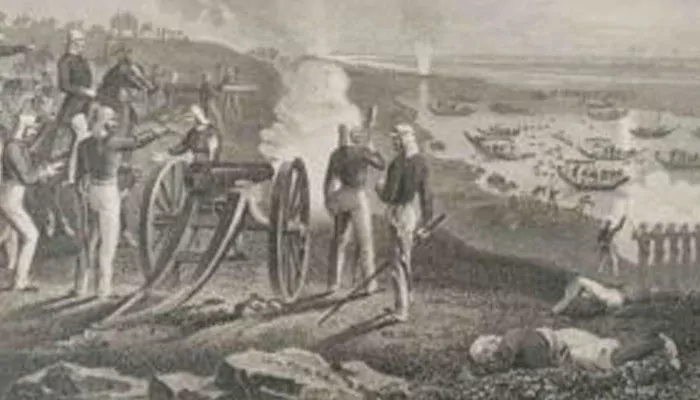
In the bustling lanes of 19th-century Patna, Peer Ali Khan was known as a bookbinder and seller of rare manuscripts. His shop, filled with pages of poetry and holy verses, attracted scholars and clerks. But behind the neatly stacked books was a man preparing for war—not with swords, but secrets. In 1857, while India trembled with unrest, Peer Ali's small store became the rebellion's headquarters. He wasn't born a warrior. He became one.
Peer Ali Khan's story began in Muhammadpur, Azamgarh, around 1812. As a child, he ran away from home and wandered into Patna, alone and penniless. A local zamindar, Mir Abdullah, took him in. He was raised in a household where Persian, Arabic, and Urdu were everyday languages. Books became his livelihood. Resistance became his purpose. He watched the British tighten their grip—first on trade, then on thought. The opium trade, land seizures, and religious interference all planted the seeds of rebellion in him.

By the 1850s, Peer Ali's bookstore had become more than a literary stop. In his shop's cramped, ink-scented backrooms, rebels whispered secrets behind Urdu manuscripts. Sepoys from Danapur, students from local madrasas, and traders from the old city came not just for books but for coded letters and quiet meetings. Peer Ali built a covert network of messengers and sympathizers. A madrasa teacher from Phulwari, a horse-cart trader from Ara, and even a Collectorate clerk played a part. Pamphlets calling for revolt were circulated, some smuggled into the Danapur cantonment, where Indian soldiers were growing increasingly defiant. He wasn't just distributing ideas—he was scripting resistance.
By May 1857, northern India was aflame. From Meerut to Delhi, Indian sepoys were rising. But in Patna, the fire was already lit. On July 3, nearly 80 rebels under Peer Ali's command marched through the city, green flags raised, shouting, "Ali! Ali!" Their first strike hit a Roman Catholic church and mission house. Then came the killing of Dr. Lyell, an assistant to a British opium agent. British forces, aided by loyalist Sikh regiments, retaliated swiftly. The narrow lanes saw smoke, blood, and curfews. The uprising was crushed but not erased.
Soon after, British Commissioner William Tayler ordered a raid on Peer Ali's shop. Tayler, a seasoned officer, had long suspected him. Inside the quiet bookshop, British soldiers found swords, secret documents, and a list of rebel contacts. Peer Ali was captured, along with 33 others. Under torture, he said nothing. Tayler's memoir later recorded him as "the most dangerous man in Patna." Offered a pardon in exchange for names, Peer Ali refused. "You may hang me," he told Tayler, "but thousands will rise in my place." Some say he smiled as he said it.
On July 7, 1857, Peer Ali Khan was hanged in public with 14 of his fellow rebels. Eyewitnesses recalled his calmness. Before stepping up, he kissed the noose. His house was demolished, his books confiscated, and his name erased from official records. But memory doesn't always follow orders. In homes across Patna, children were told stories of the bookbinder who refused to kneel. In some lanes, they still whisper the Bhojpuri line: "Peer Ali jise phaansi mili, lekin na dar gaya." A rebel not in uniform but in soul.
It took decades for India to honour him. Today, a park near Patna's District Magistrate office bears his name. A road near the airport remembers his path. On every July 7, locals gather to pay tribute, not just to a man, but to an idea. Peer Ali Khan doesn't appear in most textbooks. But he's there in every act of quiet defiance. He didn't just bind books. He unbound fear. And in the margins of history, he wrote his chapter, which is unforgettable.